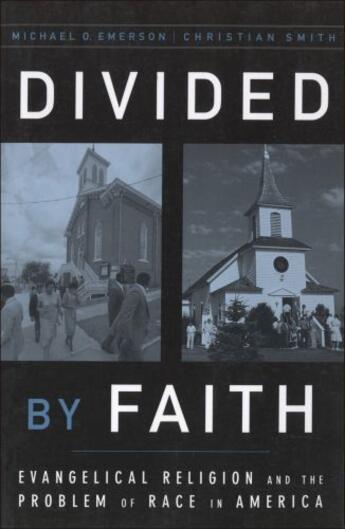-
Nombre de pages : (-)
-
Collection :
(-)
-
Genre :
(-)
-
Thème :
Non attribué
-
Prix littéraire(s) :
(-)
Résumé:
In recent years, the leaders of the American evangelical movement have brought their characteristic passion to the problem of race, notably in the Promise Keepers movement and in reconciliation theology. But the authors of this provocative new study reveal that despite their good intentions,... Voir plus
In recent years, the leaders of the American evangelical movement have brought their characteristic passion to the problem of race, notably in the Promise Keepers movement and in reconciliation theology. But the authors of this provocative new study reveal that despite their good intentions, evangelicals may actually be preserving America's racial chasm.
In Divided by Faith, Michael O. Emerson and Christian Smith probe the grassroots of white evangelical America, through a nationwide telephone survey of 2,000 people, along with 200 face-to-face interviews. The results of their research are surprising. Most white evangelicals, they learned, see no systematic discrimination against blacks; indeed, they deny the existence of any ongoing racial problem in the United States. Many of their subjects blamed the continuing talk of racial conflict on the media, unscrupulous black leaders, and the inability of African Americans to forget the past. What lies behind this perception? Evangelicals, Emerson and Smith write, are not so much actively racist as committed to a theological view of the world that makes it difficult for them to see systematic injustice. The evangelical emphasis on individualism, free will, and personal relationships makes invisible the pervasive injustice that perpetuates inequality between the races. Most racial problems, they told the authors, can be solved by the repentance and conversion of the sinful individuals at fault.
Combining a substantial body of evidence with sophisticated analysis and interpretation, Emerson and Smith throw sharp light on the oldest American dilemma. Despite the best intentions of evangelical leaders and some positive trends, the authors conclude that real racial reconciliation remains far over the horizon.
Donner votre avis















